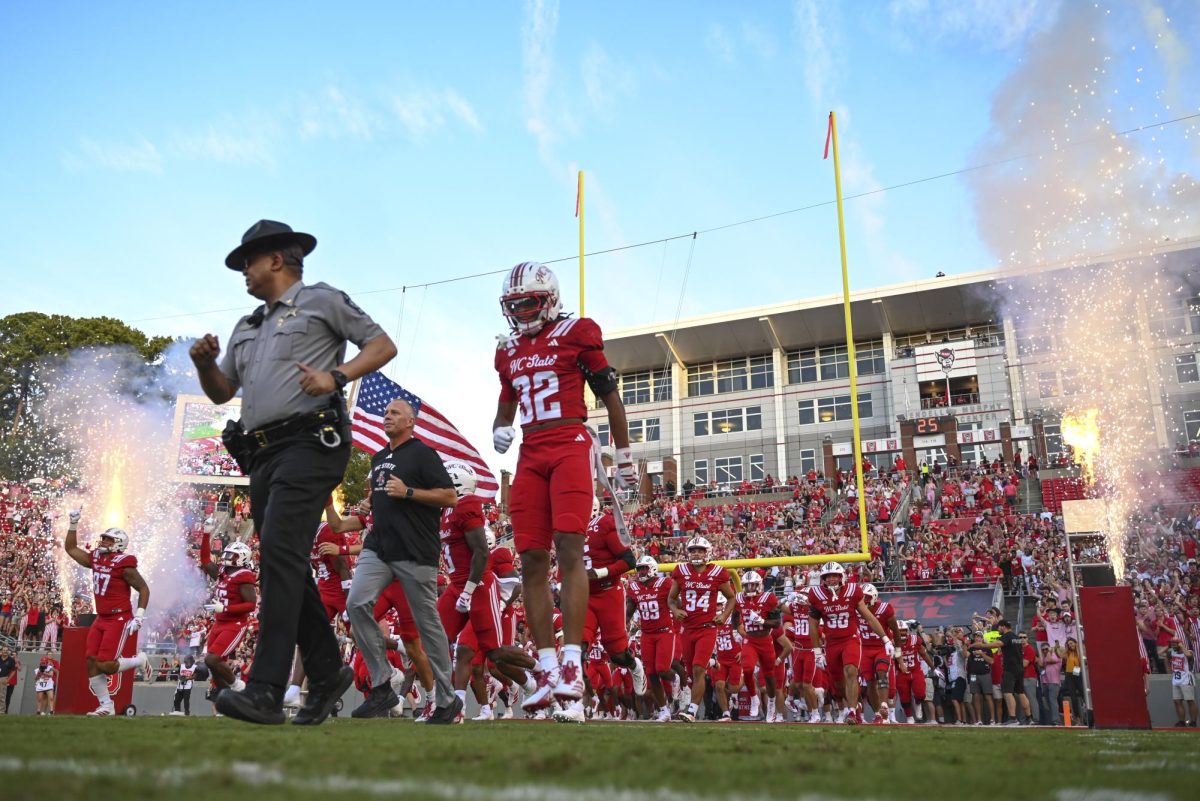Valencell, a Raleigh based company, is pioneering wearable fitness technologies that can monitor our body’s vital signs through a commonly used product in the world of exercise: headphones.
The technology uses optical and accelerometer sensors that combine to look at blood flow, heart rate, calories, VO2, oxygen consumption and cardiovascular fitness.
“The technology is ‘smart’ and provides numerous comparisons on a seamless tech,” said Chris Eschbach, an exercise physiologist working at Valencell. “This is for the elite athlete or those trying to shed the pounds.”
Steven F. LeBoeuf, the chief operating officer and co-founder of Valencell, is also an N.C. State alumnus. He was inspired to create this new product due to the rising popularity of headphones.
In the mid 2000’s, U.S. government officials were looking to use sensors to collect biometric information related to the health of the general population and to create a database, LeBoeuf said.
“Unfortunately, no one was going to wear such complex sensors and so, my idea was to use the ear as a focal point,” LeBoeuf said. “Headsets were gaining popularity, and people were wearing iPods and working out. The headset was where it all got started, and now the sensors are available for other parts of the body.”
This idea was a “big leap of faith” during its creation, he said. In 2006, the iPhone had not yet been created and wearing headsets was nowhere as popular as it is today, LeBoeuf said.
“In hindsight, people look at the company and ask themselves why they didn’t think about this first.” LeBoeuf said.
Currently, millions of people use headsets and wearable technology is the next phase in technological development, according to LeBoeuf.
Eschbach was in charge of clinical trials, and conducted hundreds of tests for prototypes while participants ran, biked, rowed and did other forms of exercise. The data measured was then compared directly to the gold-standard benchmarks for biometric readings, such as medical calorimeters, in which participants wear an oxygen mask and run.
Through this process, they made sure the technology provides accurate and reliable results.
“PerformTek gives people insightful information that empowers them towards health and fitness, with true and accurate sensors,” Eschbach said. “We don’t make the products ourselves, but license the technology to other companies.”
The company has licensed its product to companies such as Intel, Blaupunkt, LG, Scosche and iriverON. Already, iriverON has begun selling Bluetooth heart rate monitoring headphones using Valencell’s PerformTek bio sensing technology.
Many other products, including wrist bands, are going to hit the market with the majority of products out in 2015.
“The product will be a big payout for the company and will make everyone very happy,” LeBoeuf said. “More importantly it will be a big payoff for the public, providing great ease and no hassle for access to important biometric data.”
LeBoeuf offered his advice to rising entrepreneurs and those looking to create a company like he did.
“Start off with a solid foundation, and establish a team,” LeBoeuf said. “I was not the sole founder but had two other founding members. The team can call BS on your ideas and they keep everyone honest with each other, especially in the early phases. Building a company is just like building a house, it might not be the most appealing but you need the foundation first. You need to really understand yourself, your founders and stakeholders and evolve from there.”
According to LeBoeuf, the government interest in the sensors made getting grants fairly easy. Valencell received all of the grants it applied for.
“We won all of the grants we applied to for three reasons,” LeBoeuf said. “One, their technology had a way to measure everything from one spot. Two, they established relationships with Duke and N.C. State, and three, they had investments from venture capitalists. This grounded our idea and made it much more viable when applying to federal grants.”
LeBoeuf also said North Carolina had a policy for grants, in which the state would match any grant a company received from the federal government.
“You could use the money for all your legal costs, and the state grants helped us pay for these costs,” LeBoeuf said. “Very few states had such a program and North Carolina was one of those.”
The North Carolina Small Business and Technology Development Center provided a grant which helped it subsidize its stakeholder’s money. It also required no major review process because the federal grants substituted with its own in-depth reviews, LeBoeuf said.




